


On 17 March 2016, the European Commission issued a Proposal for a Regulation of the European Parliament and of the Council laying down rules on the making available on the market of CE marked fertilizing products and amending Regulations (EC) No 1069/2009 and (EC) No 1107/2009 [COM (2016) 157 Final].
This proposal introduced – for the first time – limits on a number of heavy metals, including cadmium, in EC-marked fertilizers. EC-marked fertilizers are those fertilizers that can be sold on the entire EU market. Producers’ inability to meet the limits in practice means they will not be to sell their fertilizers on the entire EU market and will be forced to stay on their domestic market.
Cadmium limits imposed by the Proposal would make it impossible to produce phosphate fertilizers in Europe, because they would restrict ability of EU industry to source sufficient phosphate rock of sufficiently good quality. The European Commision claims that limits are justified by health concerns and new sources of phosphorus, mainly organic and recycled phosphorus, will replace mineral phosphate fertilizers. EU phosphate fertilizer industry responds that slightly higher limits would achieve the same health benefits, but ensure survival of the industry. They counter that organic and recycled phosphorus – while clearly important – cannot replace mineral fertilizers for the time being

The objective of the seminar is to explore the four main issues central to the efficacy of the Commission’s proposal and its health & environmental goals:
- Availability of phosphate rock of sufficient quality to satisfy EU demand;
- Impact on North African developing countries;
- Link between proposed limits and supposed health benefits;
- Agronomic issues related to role of phosphorus for plants – ability of organic and recycled phosphorus to replace mineral phosphate fertilizers.

In addition to our excellent MEP hosts, we secured the leading industry, science and academic speakers, including:
- Jacques Greiveldinger, Head of Purchasing and Chartering Department, Groupe Roullier;
- His Excellency Tahar Chérif, Ambassadeur extraordinaire et plénipotentiaire de la Tunisie, Chef de représentation (UE), Chef de mission (UE)
- Sandrine Pigat, Head of Food and Nutrition, Crème Global
- prof. José María García-Mina Freire, Environmental Biology Department, Biological and Agricultural Chemistry Group (BACh), University of Navarra

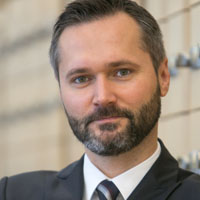
Mr. Walesa graduated with a Bachelor of Arts in Political Science in 2001. Because of family tradition, he entered politics very early. In 2005 and 2007, he was elected to the Polish Parliament, where, among others, he was active in the European Affairs and Foreign Affairs Comittees. In 2009 and 2014, he was elected to the European Parliament. Mr. Wałęsa has been serving – for two terms – on the Fisheries, Petitions and International Trade Committees of the EP, and the Delegation to Japan, and he is now serving on Delegations for relations with the countries of Central America, and to the Euro-Latin American Parliamentary Assembly. He is currently the Vice-Chair of the Fisheries Committee.
In Poland, Mr. Wałęsa heads the Civic Institute, a public policy think-tank. Because of his hometown, Gdańsk, Mr. Wałęsa’s areas of professional focus include all matters related to fisheries and maritime issues, and international trade. For family history reasons, he also has particular focus on human and political rights around the world, including Cuba.


Mr. Griesveldinger is the head of the raw materials purchasing and chartering department of Groupe Roullier, a French family-owned company based in St Malo, France that has been innovating on the field of plant nutrition for over 50 years. Roullier is a producer of all types of fertilising products with 16 industrial sites in the EU, a commercial presence in 25 of the 28 Member States, and 7800 employees. Jacques Greiveldinger holds a Master in chemical engineering from Ecole Centrale Paris, France. After 10 years in the Petrochemicals industry, he joined the group Roullier in 2005. He his now managing the 3mioT/y purchases for the Fertilizer business and also in charge of the chartering for imports and exports fr the whole group (about 300 vessels chartered per year)

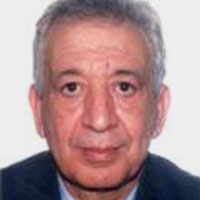
His Excellency has a long well-established carrier for the Tunisian diplomacy. He began working for the Ministry of Foreign Affairs of Tunisia in 1984 and has held numerous posts in the Ministry, including Secretary of Foreign Affairs; Head of Division of the EU, Head of the France Desk, Deputy Director in charge of Cooperation with France, Italy, Germany and Austria, Head of Research and Analysis and Director for Bilateral Relations with EU countries, all at the General Directorate for Europe and the EU. He has also held numerous Embassy postings, including in Libreville, Gabon; Athens, Greece; and Paris, France, where he held the post of Chargé d’Affaires ad interim. He was appointed Tunisia’s Ambassador in 2012 and has held this position since then.

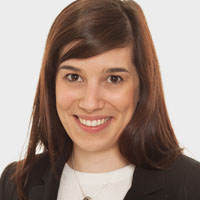
Sandrine, originally from Luxembourg, completed her Bachelor's degree in Ecotrophology and Master's degree in Nutritional Sciences at the Justus-Liebig-University Giessen in Germany. She has previously worked in the area of nutrition counselling in private as well as in clinical settings. For the last 7 years she’s been working in Creme Global, a leader in predictive intake modelling, where she is delivering training, scientific support and data to leading customers from industry, government and academia using probabilistic intake models, food data analytics and software models. She also leads scientific projects in the same area as well as well as EU funded projects such as BACCHUS FP7 and ODIN FP7.

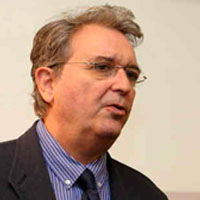
José María García-Mina Freire is an agricultural chemist with expertise in plant nutrition and soil chemistry. He obtained a Master of Science degree. in chemical sciences (1982) at the University of Saragossa and a PhD in agricultural chemistry and vegetal physiology (1990) at the University of Navarra. He was appointed as Associate Professor at the University of Navarra in 1999. He is currently Full Professor at the Environmental Biology Department of the University of Navarra, coordinating the work of the Biological and Agricultural Chemistry Group, and teaching soil chemistry and plant nutrition. Parallel to his academics’ responsibilities, José María García-Mina Freire has been in charge of the research and development activities of Timac Agro España (1989-2014).
His main field of research focuses on mineral nutrition for plants and soil chemistry, looking at the interaction of organic matter with plant nutrients. Number of his research projects were investigating phosphorus nutrition to plants. Current projects focus on the development of natural chelates of microelements for fertilizing products and decontaminating agents for soil regeneration and protection of the environment.
José María García-Mina Freire published 128 JCR indexed articles, 46 book chapters and contributed to 48 international patents.

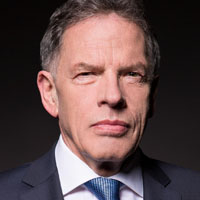
Prof. Rosati graduated from the Department of Foreign Trade at Warsaw School of Statistics and Planning (currently the Warsaw School of Economics - WSE). Since 1990 he has been a professor at the WSE, specializing in macroeconomic policy, European integration as well as international trade.
Before becoming a Member of the European Parliament for Poland, Mr. Rosati was the Section Chief of the countries of Central and Eastern Europe for the UN Economic Commission for Europe in Geneva. Between 1995 and 1997 he served as the Minister of Foreign Affairs while between 1998 and 2004 he was a member of the Polish Monetary Policy Council.
From 2011-2014 he was a Member of the Polish Parliament and the Chairman of the Public Finance Committee. He was a Member of the European Parliament between 2004 and 2009 and has served as an MEP since 2014. Prof. Rosati is an active member in both the ECON and the IMCO committee, being the EPP Coordinator in the PANA Committee as well as the Vice-Chair of the EPP Working Group on Economy and Environment.






